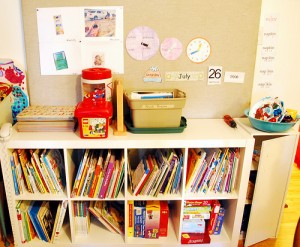Homeschooling Options-Today’s Homeschool Families
Homeschooling is not a one-size-fits all method and homeschooling families are as varied as the children they raise. What works best for one family does not necessarily work for another. However, all homeschooling families agree in one area: public education is failing and not the ideal place for raising children.
I realize also that homeschooling my children is a true gift. I am able to do so because my husband has a great job and because I have been able to successfully work from home. Our lives are not easy, but for us, this is the right fit. The truth is, homeschooling is different for everyone.

Although homeschooling may seem a novel concept to some, the growth of a 20th century public school education depicted in media as lack luster is more so every day. Our current educational system was created during a whole different time. We are such a technology based society and world, and sadly our educational system just has not caught up yet. Today’s homeschooler has a vision for their child’s future.
Early history shows that homeschooling was the norm and many of the world’s greatest leaders, philosophers, scientists, musicians, poets, and thinkers enjoyed a homeschooling education. Some homeschooling families choose to have the mother as teacher while others used a private tutor. The truth is homeschooling is different for everyone.
Homeschooling saw resurgence in the late 70s to early 80s and in the 21st century, is no longer viewed as a strange or foreign educational choice. We as a society needed alternatives to teach our children and homeschooling became a strong option. Today’s homeschoolers are not all deeply religious people. They are regular families, they are famous families, they are families that simple have a different idea of what their kids need.
If you are considering homeschooling here are something to consider:
- Can you organize your life to make room for educating at home?
- Are you aware of the state laws for homeschoolers in your area?
- Can you make time to educate at home?
- Are you willing to learn something new too? You might have to teach something you don’t know much about.
- Is your child-parent relationship open? Is their good communication?
- Can you afford to be at home and educate your child.
- What kind of homeschooler will you be? Will you use a online public school program like k-12 or will you choose your own curriculum?
- Can you afford the investment. If you choose to educate at home you will have some costs associated with buying curriculum, materials and other supplies.
With so many options, programs and unique qualities, if you choose to homeschool then there is an option out there that will fit your needs. You just need to make the jump and go for it. Remember every homeschool family takes their program one year at a time, so if you try it for a year and it does not work out for you, you can always go back to a traditional brick and mortar schooling program. The important thing to remember is that you or your child don’t have to be unhappy with the current state of their educational program. You can take charge, course a new direction and get back on the path of what education was created for: to prepare and educate the young people of society and teach them that they can work hard and achieve all the goals they choose too.
Share the fun: Email + Del.icio.us + Digg + Technorati




